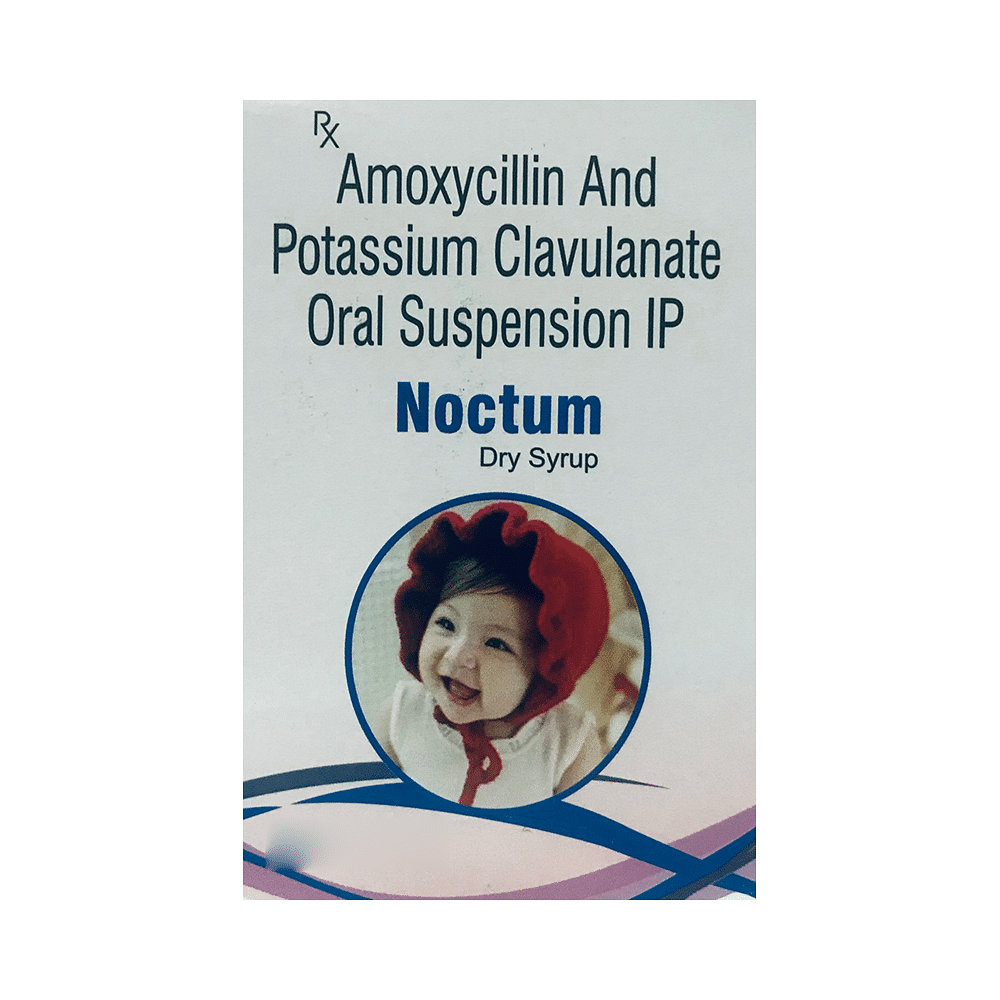
Metclav Duo Oral Suspension
Manufacturer
Medishri Healthcare
Salt Composition
Amoxycillin (200mg/5ml) + Clavulanic Acid (28.5mg/5ml)
Key Information
Short Description
Metclav Duo Oral Suspension is an antibiotic medicine that helps treat bacterial infections of the ear, nose, throat, chest, lungs, teeth, skin, and urinary tract.
Dosage Form
Oral Suspension
Introduction
Metclav Duo Oral Suspension is an antibiotic medicine that helps treat bacterial infections of the ear, nose, throat, chest, lungs, teeth, skin, and urinary tract. It is capable of killing bacteria that have become resistant to other therapies and thus also helps treat tuberculosis that is resistant to other treatments.
Directions for Use
Your child must complete the entire course of antibiotics. Stopping too soon may cause the bacteria to multiply again or cause another infection.
How it works
Metclav Duo Oral Suspension is an antibiotic. It has two active agents amoxycillin and clavulanic acid. Amoxycillin works by preventing the formation of the bacterial protective covering (cell wall) essential for the survival of the bacteria. Whereas clavulanic acid serves a special purpose of inhibiting an enzyme (beta-lactamase) that is produced by resistant bacteria. This makes the combination of amoxycillin and clavulanic acid an effective line of treatment for many types of infections.
Quick Tips
Your child must complete the entire course of antibiotics. Stopping too soon may cause the bacteria to multiply again or cause another infection. Encourage your child to drink plenty of water in case diarrhea develops as a side effect. Never give Metclav Duo Oral Suspension until and unless prescribed by the doctor. Do not give Metclav Duo Oral Suspension to treat common cold and flu-like symptoms caused by viruses. Check ‘expiry’ before giving Metclav Duo Oral Suspension to your child. Immediately discard all the expired medicines.
Related Medicines

Almoclav Dry Syrup

Noctum Dry Syrup

Arowin-CV Oral Suspension

Clav-Vox 228.5 Dry Syrup

Duoclav Oral Suspension

Moxinet-CV Dry Syrup

Molav-CV Dry Syrup

Amocrin-CV Dry Syrup

Outclav Dry Syrup

Acdok CV Dry Syrup
Frequently asked questions
Can other medicines be taken with Metclav Duo Oral Suspension?
It is essential to inform your doctor about any other medicines your child is taking before starting Metclav Duo Oral Suspension. Additionally, consult with your child's doctor before giving any medicine to your child, as Metclav Duo Oral Suspension can sometimes interact with other medicines or substances.
Can my child receive vaccinations while taking Metclav Duo Oral Suspension?
Antibiotics like Metclav Duo Oral Suspension usually do not interfere with vaccine ingredients or cause adverse reactions in children who have recently been vaccinated. However, it is recommended to wait until your child has recovered from the illness before getting vaccinated.
What lab tests may my child undergo while taking Metclav Duo Oral Suspension for an extended period?
During prolonged therapy, your child's doctor may monitor kidney and liver function tests periodically to ensure your child's condition remains stable.
Can I give my child a higher dose of Metclav Duo Oral Suspension than recommended?
No, giving a higher dose of this medicine than recommended can increase the risk of side effects. If your child's symptoms worsen, consult your doctor for re-evaluation.
Can I stop giving Metclav Duo Oral Suspension to my child when their symptoms improve?
No, do not stop giving this medicine to your child unless the full course of treatment is complete, even if you feel better. The symptoms may improve before the infection is fully cured. Continue giving the medicine for the prescribed duration, as it may still be providing beneficial effects.
Can Metclav Duo Oral Suspension cause diarrhea?
Yes, Metclav Duo Oral Suspension may cause diarrhea. This is because the medicine kills harmful bacteria, which can also affect the helpful bacteria in your child's stomach, leading to diarrhea. If your child experiences diarrhea, encourage them to drink plenty of water or other fluids. If diarrhea persists and you notice signs of dehydration, such as less frequent urination with dark-colored and strong-smelling urine, consult your doctor. Do not give any other medicine to your child without consulting a doctor.
Do all viral common colds result in secondary bacterial infection?
Most of the time, bacterial infections do not follow viral infections. Giving antibiotics in viral infections can increase your child's risk of developing side effects. Use antibiotics only after consulting with your child's doctor.
Is yellow-green mucus in my child's nose a sign of a bacterial infection?
Yellow or green mucus in the nose does not necessarily mean that antibiotics are needed. During a common cold, it is normal for mucus to thicken up and change from clear to yellow or green. Symptoms often last for 7-10 days.
Are there any signs that indicate my child needs immediate medical attention?
You should contact your child's doctor immediately if your child experiences serious allergic reactions (breathing problems, skin rashes), gastrointestinal infections (diarrhea), or liver damage (weakness, paleness, vomiting). Although rare, these side effects are serious and require medical attention.


